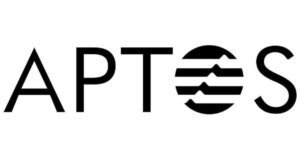 Nearly three-quarters of organizations now use AI, breaking adoption stagnancy: McKinsey
Nearly three-quarters of organizations now use AI, breaking adoption stagnancy: McKinsey Nearly three-quarters of organizations now use AI, breaking adoption stagnancy: McKinsey
The news comse alongside the announcement of new Nvidia chips.

Cover art/illustration via CryptoSlate. Image includes combined content which may include AI-generated content.
A new survey reveals that 72% of organizations have adopted AI in at least one area as of March 2024, according to a new survey conducted by McKinsey on May 30.
Meanwhile, roughly 50% of all respondents said that their organizations adopted AI in two or more business functions.
Each metric is up from 55% and 33% in 2023, respectively.
The proportion of organizations that specifically reported using generative AI nearly doubled from 33% to 65% between 2023 and 2024.
Organizations consistently reported adopting AI at a rate of 47% to 58% from 2018 to 2023. McKinsey emphasized that the trend breaks long-term stagnation, stating:
“AI adoption worldwide has increased dramatically in the past year, after years of little meaningful change.”
McKinsey also found that respondents are more likely than ever to use AI both inside and outside of work, with the highest seniority individuals reporting the largest growth in that category.
The company found that Asia–Pacific and Greater China demonstrated the greatest growth in AI use.
AI produced benefits
According to the report, AI adoption is most common in two areas previously identified as having the most potential to produce value.
The first area is marketing and sales, where 34% of respondents applied AI. The second area is product and service development, where 23% of respondents used the technology. Additionally, 17% of respondents used AI in IT functions, an area McKinsey did not identify in its previous research.
McKinsey also commented on investments. it reported that firms were almost as likely to invest 5% of their digital budgets in generative AI versus analytic AI.
Generative AI investments most often reduced human resource costs and provided meaningful revenue increases above 5% in supply chain and inventory management.
Analytical AI investments most frequently produced cost benefits in service operations and meaningful revenue gains in revenue and sales.
Nvidia, AMD readying new chips
McKinsey’s survey results come alongside a June 2 report that Nvidia has announced a new generation of AI chips called Rubin. The new chip lineup comes months after the firm announced the previous generation of chips, called Blackwell.
Nvidia is critical in driving the AI revolution. According to an estimate from Mizuho Securities, it accounts for 70% to 95% of the AI chip market share.
The firm announced record-breaking quarterly revenue at the end of May.
Nvidia’s competitor, AMD, announced its new line of AI chips on May 3.




 CoinGlass
CoinGlass 


 Farside Investors
Farside Investors 






















































































